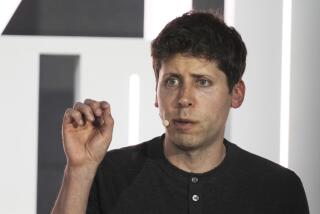A shamed AOL backs off its retirement benefit cut

Call it a case of PR trumping HR: After days of public shaming and ridicule for his decision to cut the value of his firm’s employee retirement benefit -- and his rationalization for doing so -- AOL Chairman and Chief Executive Tim Armstrong has backed down.
In a Saturday email to his fellow “AOLers,” Armstrong said the company was changing its 401(k) match of up to 3% of wages back to its old system. The old way was to pay out the match every pay period. The new way was to pay it annually, at the end of the year, only to employees still with the company at that time. That potentially cost workers in two ways: Workers who left AOL before the payout date would lose it, and all workers would be deprived of market gains on the match during the year.
Armstrong asserts in the email that under his leadership the company has has “an employee-first culture,” but his actions and comments over the last week contradicted that. He claimed that the change in the 401(k) match was a response to AOL’s rising costs under the Affordable Care Act. He calculated those costs at $7.1 million, but he hasn’t shown how, and healthcare experts are skeptical.
He also pointed the finger at two employees who had “distressed babies” costing $1 million each in healthcare expenses. In the latest email, he apologized for mentioning that, though he hadn’t identified the employees by name. A mother claiming that one of the babies is hers -- she says her husband is an AOL employee -- writes about the experience Sunday on Slate.com. It’s impossible to confirm her story, but the points she makes about the utter crassness of Armstrong’s comments are valid.
This still looks like an example of a corporate executive using “Obamacare” as a scapegoat for a cheeseparing policy cooked up strictly for economic reasons. As we’ve pointed out before, that’s a common and wholly dishonorable practice in the corporate suite.
Though it wasn’t Armstrong’s only rationale for the 401(k) change. He also told CNBC that the company figured that its obligations to employees who were leaving AOL were at the “bottom of the list” -- so why not screw them on their way out? If Armstrong listened to himself talk, he might learn why “AOLers” might want to leave in the first place.
More to Read
Inside the business of entertainment
The Wide Shot brings you news, analysis and insights on everything from streaming wars to production — and what it all means for the future.
You may occasionally receive promotional content from the Los Angeles Times.











